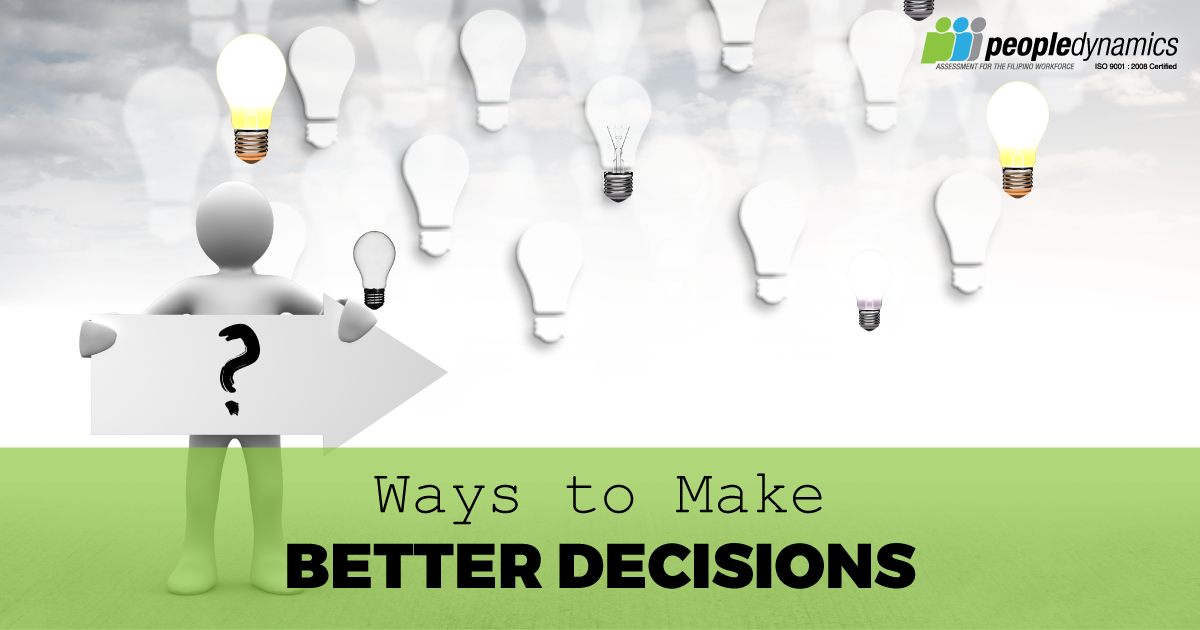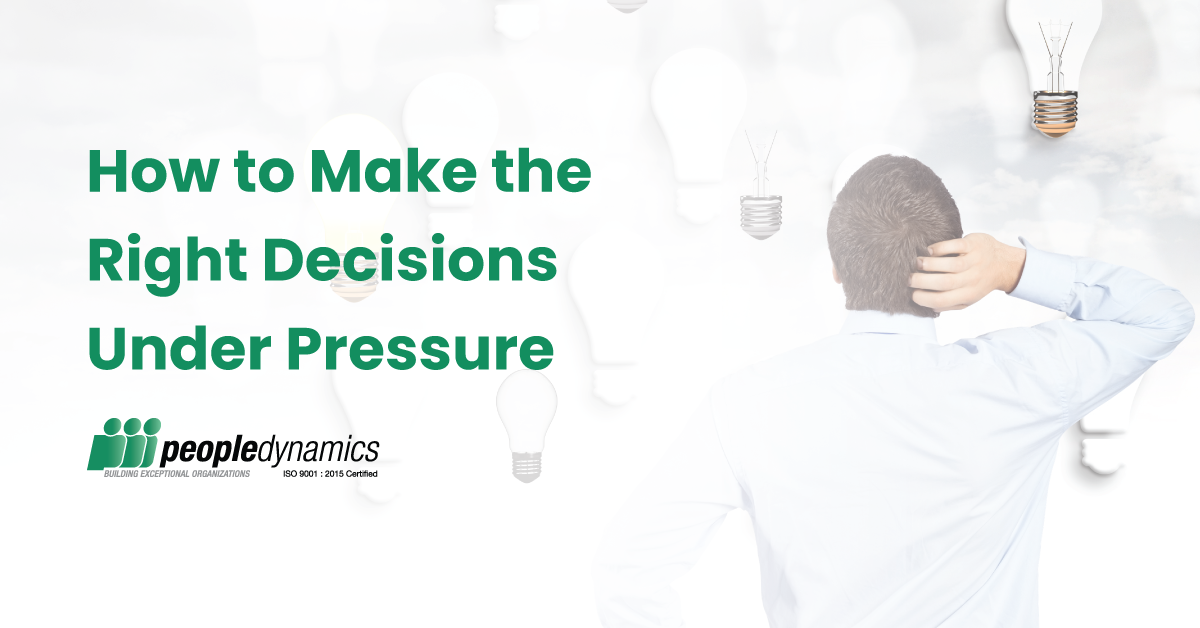We run over many decisions every day. Sometimes quick for simple things like what to wear to work or what to eat for lunch, and sometimes, they require a lot of time and consideration before taking action. Whether consciously or unconsciously, decisions are a part of our daily lives. How could you make better decisions, especially when it’s an important one?
How to Make Better Decisions
Calm your nerves
Don’t let your nerves take over you! This is proven time and time again: a person with a calm mind makes better decisions. Yes, the pressure is there and you get anxious, but don’t let it get to you. Take a deep breath, and take another, until you feel your heartbeat slowing down. Chris Lewis Ed.S., LPC notes on the Maria Droste Counseling Center website that the “first and most simple and direct way to calm anxiety is something we do every day. Breathing.”
Inhale. Exhale. Inhale. Exhale. There!
Set realistic timelines
Sometimes, when we have a ticking clock ahead of us, we tend to set a timeline and try to accommodate everything within that timeline. Often, this leads to missed deadlines or substandard work. Be realistic with your time estimates. Underestimating how a certain project takes may lead to ineffective decisions. Consider everything from start to finish, as well as any bumps and obstacles that you may face, and always leave an allowance for anything unforeseeable for now.
List it down and don’t forget to back it up
This technique has been done for a very long time and is one of the most effective ways to make a sensible and well-thought decision. List down your options then back up each option with their advantages. Now you have a clear view of the positive side of each choice. Next, list down the disadvantages. Weigh each side carefully and if you’re still having doubts, you could always look for additional information.
Yes or No? Uhm—or?
Admit it: we often do this. We narrow down our decisions to a question answerable by yes or no, thinking that it will make our lives easier. That may be true in some cases, but sometimes our decision-making becomes too narrow. The creativity of solutions to a problem dwindles to a simple yes or no. Because of this, some risks may be neglected that in the future may cause bigger problems.
Stop thinking for a moment
Give your brain a break. No matter how important the decision that you’re supposed to make is, sometimes, all you need is to stop thinking for a moment. Do some mindless tasks that—instead of using the cognitive or “thinking” side of your brain—let your emotional side take over. You’ll see that by “not thinking”, you feel calmer, more relaxed and refreshed.
Jacqueline Carter, the North American Director for Potential Project says that “giving our brain a little break from thinking naturally relaxes the body.” She also points out that over-thinking creates undue stress because of “[humans’] negativity bias and natural orientation to ruminate.”
Don’t hesitate to ask for help
Last but not the least, don’t hesitate to ask for help. If you’re having a hard time deciding by yourself or you’re doubting if what you choose is right, you could always talk to someone. Inform someone you trust regarding the situation and the choice that you’re about to make. They can help you provide a bigger picture than what you’re seeing, or help clear some of your doubts. You could also consult someone with more experience.
As the stakes get bigger, each decision gets harder and harder to make. You have to deal with a lot of consequences, as well as the possible complications of the decision that you made. But, as long as you do your best to make the right choice, the success will be worth it.



